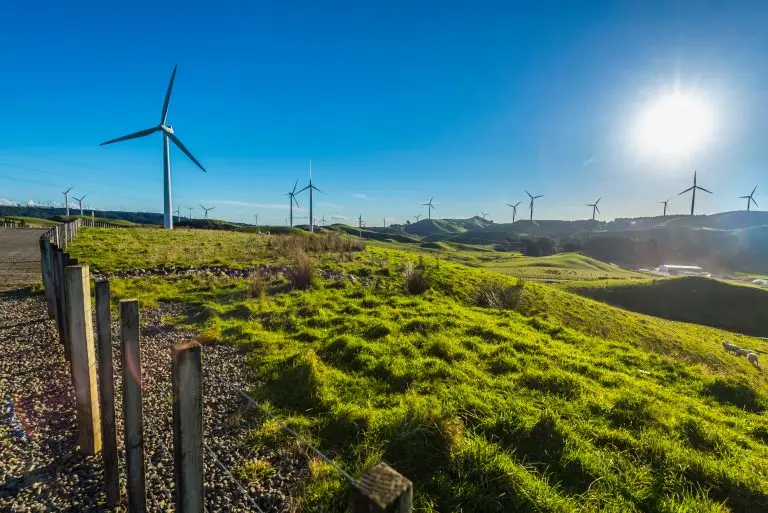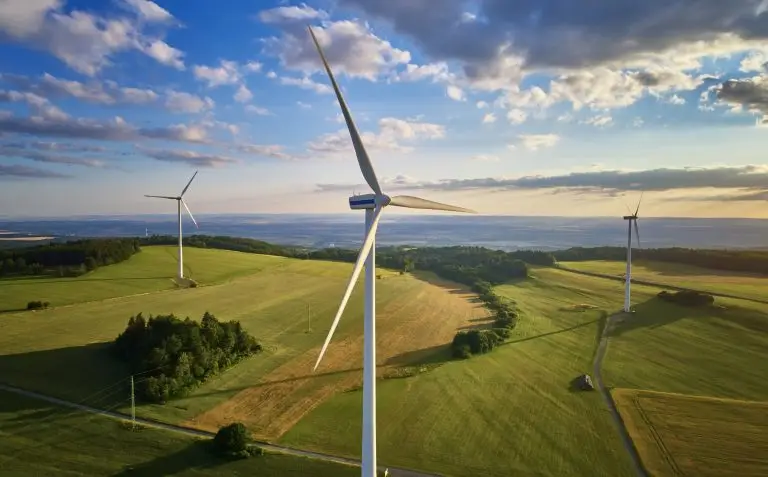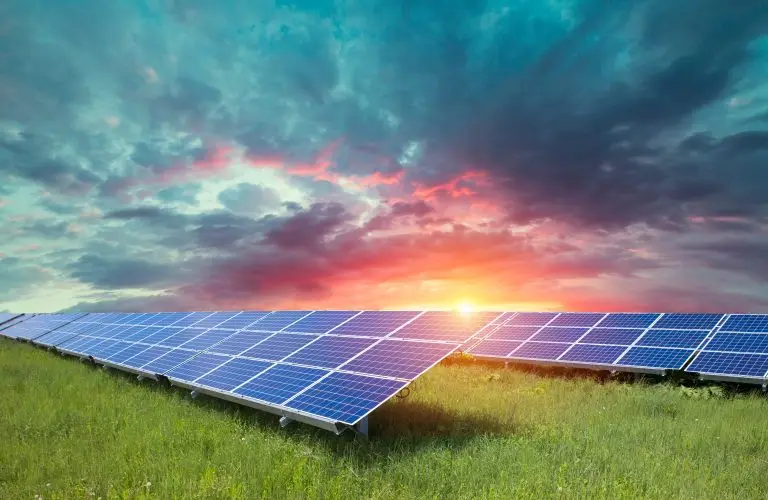On 31 December 2021, Emergency Government Ordinance no. 143/2021 amending and supplementing Law no. 123/2012 on electricity and natural gas (“EGO 143/2021”), entered into effect. It was a long-awaited amendment of Law no. 123/2012 on electricity and natural gas (“Law 123/2012”), since its main purpose was to implement Directive (EU) 2019/944 on common rules for the internal market for electricity (“2019 Electricity Directive”). The 2019 Electricity Directive entered into force on 4th of July 2019 and Member States had until 31st of December 2020 to transpose it into national legislation. Given that Romania was already in default regarding the implementation, after a series of failed attempts to pass the amendments through a law approved by the Parliament, the Ministry of Energy decided to approve EGO 143/2021. It is worth mentioning that even if EGO 143/2021 is now in effect, the Parliament has to approve it by means of a legislative procedure, meaning that certain provisions provided thereunder can still suffer amendments, or that the Parliament can, theoretically, reject it in full.
EGO 143/2021 introduces a series of amendments and additions to Law no. 123/2012 in order to align the national provisions with those provided at EU level. As mentioned above, although the vast majority of the changes refer to the electricity market, as they concern the implementation of the 2019 Electricity Directive, EGO 143/2021 also provides a series of lesser changes to the functioning of the gas market.
Lastly, as EGO 143/2021 amends only the primary legislative level, the National Authority for Regulating Energy (“ANRE”) will have to make significant changes on secondary legislation to fully align the national provisions with those existing at EU level. To this end, according to EGO 143/2021, ANRE will have 6 months to adapt the secondary legislation with the provisions set forth in EGO 143/2021. Until then, any normative acts issued based on Law 123/2012 will remain applicable, with the exception of those provisions which are in contradiction with the amendments brought by EGO 143/2021. Below you can find a short overview of the most important amendments brought by EGO 143/2021:
- One of the most important changes brought by the EGO 143/2021 is the elimination of the obligation to conclude electricity wholesale transactions on the centralized market. EGO 143/2021 eliminates the definition of a “centralized electricity market”, introducing the notion of an “organized electricity market”, as being either a multilateral system reuniting or facilitating the reunion of third parties interests to purchase or sell wholesale energy products, in a manner that results in a contract being concluded, or, any other system or facility in which the sale-purchase interests of third parties regarding wholesale energy products can interact in such a way that a contract is concluded. Consequently, the following transactions, but not limited to, can be freely concluded on the electricity wholesale market: a) bilateral transactions negotiated directly (including PPAs); b) transactions concluded as a result of bidding rounds on organized markets, including the balancing electricity market; c) electricity import and export transactions.
- The introduction of a new category of customers, i.e., the “active customer”. The latter is defined as a final customer, or a group of jointly acting final customers, who consumes or stores electricity generated within its premises, located within confined boundaries or, where permitted, within other premises, or who sells self-generated electricity or participates in flexibility or energy efficiency schemes, provided that those activities do not constitute its primary commercial or professional activity; As the EU strives to reach carbon neutrality by 2050, much of the efforts to achieve this milestone are directed towards empowering final customers to have a more active role in what concerns their impact in the energy sector. Active customers will not only be able to produce their own electricity, but can also store it and send it back to the grid when needed. In the EU’s vision, active customers would play an important role in the flexibility of the electricity market and will also aid the functioning of the internal market, since liberalization of the electricity market also adds to the responsibility of the customers by raising awareness on consumption patterns.
- Apart from the definition of an active customer, EGO 143/2021 also introduces a new definition for “prosumers” and at the same time repels the provisions of Law no. 220/2008 for promoting energy produced from renewable energy sources which refer to prosumers. It is worth mentioning that, although the term prosumer has been greatly used at EU level, there is no legal definition of this term in the 2019 Electricity Directive, nor in its predecessor. The definition provided in EGO 143/2021 for a prosumer is to a great extent the same definition provided under the 2019 Electricity Directive for a “renewables self-consumer”, which is a final consumer who generates renewable electricity for its own consumption and may store or sell its self-generated renewable electricity, provided that, such activities do not constitute its primary commercial or professional activity. The location of the operations it is also a key aspect of the definition under EGO 143/2021. Prosumers must operate within their premises located within confined boundaries, or in premises in the near proximity of their premises, including an apartment building, a residential area, a location for shared services, commercially or industrial or within the same closed distribution system.
- Another concept introduced refers to citizens energy communities (“CECs”). They are legal entities based on voluntary and open participation, which are effectively controlled by members or shareholders that are natural persons, local authorities, including municipalities, or small enterprises. The primary purpose of a CEC is to provide environmental, economic or social community benefits to its members or shareholders or to the local areas where they operate, rather than to generate financial profits. They are free to engage in generation of energy, including from renewable sources, distribution, supply, consumption, aggregation, energy storage, energy efficiency services, charging services for electric vehicles or to provide other energy services to its members or shareholders. They are subject to non-discriminatory, equitable, proportionate and transparent procedures and tariffs, including as regards registration and granting of licenses, as such are established by ANRE. CECs can cooperate with distribution operators in order to facilitate the transfer of electricity within the CECs, subject to a fair compensation established by ANRE.
- An existing concept which is further elaborated by EGO 143/2021 refers to the aggregator. Although the notion of an aggregator already exists in Law no. 123/2012, the new EGO expands its role in the functioning of the internal market. Each participant involved in aggregation has the right to enter the electricity market without the endorsement of the other market participants. Customers have the right to purchase or to offer aggregation services as aggregators, independently from their contract to supply electricity and from an electricity undertaking of their choice. Same as the CECs, the market participants engaged in aggregation will be financially responsible for the imbalances that they cause in the electricity system. To this end, they can either keep their balance responsibility or delegated it to a balance responsible party of their choice, in accordance with article 5 of Regulation no. 2019/943 on the internal market for electricity (“EU Regulation no. 943/2019”)
- EGO 143/2021 also amends the provisions regarding the universal service. Before the amendment, the universal service was defined as “the guarantee of household customers and non-household customers with less than 50 employees and an annual turnover not exceeding EUR 10 mil to be supplied with electricity of a special quality at competitive, easily and clearly comparable, transparent and non-discriminatory prices”. In contrast, EGO 143/2021 limits this right only to household customers. The 2019 Electricity Directive leaves the Member State to decide whether non-household customers will be entitled to the universal service right or not. From EGO 143/2021 it appears the legislator has chosen to eliminate non-household customers from the protected category.
- In addition, in line with the provisions of the 2019 Electricity Directive, EGO 143/2021 changes the criteria for granting financial compensation or other forms of compensation and exclusive rights for the fulfilment of the public service obligation and universal service, stating that such compensation shall be granted in a non-discriminatory and transparent way. The Government will inform the European Commission (“EC”) of all measures adopted in order to fulfil the two obligations, including measures regarding consumer and environmental protection, as well as their possible effect on national and international competition. Subsequent notifications to the EC will be made every two years, in case any changes occur to those measures.
- To protect the customers in their relationship with the supplier, the 2019 Electricity Directive provides that Member States must ensure customers have access to out-of-court mechanisms for settling disputes. To this end, EGO 143/2021 provides that the participation of electricity undertakings in out-of-court mechanisms for household customers shall be mandatory. Law no. 123/2012 already established a Commission for solving disputes arising between participants of the electricity market. The Commission is formed by 5 members, appointed through a decision of ANRE, from expert members with at least 8 years’ experience in the electricity sector.
- The liberalization of the market also brings new responsibilities to customers, especially as regards balancing requirements. EGO 143/2021 provides that market participants must take full financial responsibility for covering the costs of the imbalances they are generating on the market. Prosumers with an installed capacity to generate power of less than 400kW are excluded from the responsibility regarding balancing, as the latter will fall on their supplier.
- In order to allow market participants to protect themselves against volatility risks on a market basis, and mitigate uncertainty on future returns of investments, long-term hedging products will be tradable on exchanges in a transparent manner and long-term electricity supply contract will be negotiable over the counter, subject to compliance with EU law. We note that in this context the definition of a long-term electricity supply contract has to be understood in connection with the definition provided under the 2019 Electricity Directive for the electricity supply contract, meaning any contract for the supply of electricity, provided that it does not include electricity derivatives. Thus, it includes power purchase agreements between producers and suppliers as well as other agreements concluded on the wholesale market. With this new provision, the limitation on long-term supply contracts is lifted completely, since for new capacities, in operation since June 2020, such agreements could already be concluded.
- Suppliers are able to establish freely the price for supplying electricity, with express exceptions provided under the law. To this end, EGO 143/2021 sets the conditions in which intervention in the price setting can take place for energy poor or vulnerable household customers, such as to:
- pursue a general economic interest and not go beyond what is necessary to achieve that general economic interest;
- be clearly defined, transparent, non-discriminatory and verifiable;
- guarantee equal access for Union electricity undertakings to customers;
- be limited in time and proportionate as regards their beneficiaries;
- not result in additional costs for market participants in a discriminatory way.
- Significant changes are made also with regard to the relationship between customers and suppliers. Suppliers are obliged to offer to final customers the option to receive and access electronic invoices as well as flexible ways to pay such invoices. In addition, the invoices must include clear, transparent and easy to understand information which should allow the final customers to adjust their consumption and compare other supply offers. Moreover, the supplier must give the option to the final customer to conclude contracts with dynamic prices, but also to inform them on what are the advantages and risks of such contracts, including the need of owning a smart meter. The Supplier is also obliged to establish a single contact point, physical or virtual, to ensure final customers are adequately informed about their rights, the legislation in place, dispute resolution mechanisms, complaints, referrals or claims. The information provided to final customers must be offered free of charge.
- Electricity produced from renewable energy sources (“E-RES”) will no longer have a guaranteed access to the network, in return EGO 143/2021 provides that producers of E-RES may benefit from priority dispatch, according to the provisions of Law 123/2012 and of EU Regulation no. 943/2019, which provides a few exceptions when E-RES will be given priority – such as for E-RES power-generating facilities with an installed electricity capacity of less than 400kW. In addition, E-RES produced in power plants accredited to apply the green certificates scheme introduced by Law no. 220/2008, will have guaranteed access to the grid.
- In accordance with the provisions of 2019 Electricity Directive, EGO 143/2021 introduces new sanctions, including in case of failure to comply with certain obligations under the EU provisions, especially Regulation (EU) no. 943/2019. Moreover, EGO 143/2021 amends the definition of a repeated contravention. The latter is considered to have occurred if the same contravention took place at least two times within 12 consecutive months.
- In order to maintain an adequate liquidity of the electricity market, state-owned producers must trade at least 40% of their annual electricity production through contracts on exchanges, on other markets than (i) the day ahead market; (ii) the intra-day market, and (iii) the balancing market.
- In terms of natural gas, according to EGO 143/2021 the concession provider will be able to approve the sale by the concessionaire of its own natural gas distribution network of the area under concession to a third-party operator, authorized by ANRE, if the latter will assume all rights and obligations from the concession agreement.
EGO 143/2021 also introduces various provisions related to hydrogen, such as (i) access to the hydrogen terminal, (ii) commercial exploitation of a hydrogen terminal; (iii) hydrogen production installations, (iv) rights and obligations of the operator of a hydrogen terminal etc.




